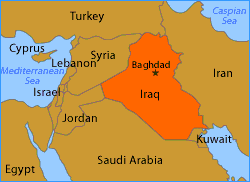Prior to and during the early years of Saddam Hussein’s regime, Iraqi gender policies were among the most progressive in the region. Efforts to eliminate illiteracy, which disproportionately impacted women, were largely successful. In 1970, the Iraqi constitution declared all citizens equal. In 1980, women gained the right to run for office. Yet real political power never extended far beyond Saddam Hussein’s inner circle, and women soon learned that their rights and opportunities were subject to the political winds.
From 1980 through 1988, Iraq fought a devastating war with neighboring Iran. In 1990, Iraq invaded Kuwait, only to be expelled by a multinational coalition less than a year later. The wars and their aftermath resulted in sanctions, a weakened economy, and a loosening of Saddam Hussein’s political grip. He responded by appeasing Islamic fundamentalists and tribal leaders, freeing local figures to re-establish traditional religious and cultural standards for women. At the same time, the collapsing Iraqi economy hit women and children particularly hard.
The U.S.-led invasion has freed Iraq (which is 97 percent Muslim) of dictatorship, but the future remains uncertain. Today, due to economic instability and widespread violence, a primary concern for Iraqi women is survival — for them and their families. Infant mortality rates are high. Almost half of children under age 5 are malnourished and 193 out of every 100,000 births result in the mother’s death. (By comparison, the rate in Jordan is 41 deaths per 100,000.) Street crime, including rape, kidnapping, and murder, has skyrocketed since the fall of the Baathist regime. Meanwhile, Islamic fundamentalist militias have effectively imposed Sharia law in many parts of the country. In 2004, the Ministry of Higher Education noted that 3,000 women postponed their university studies, citing security concerns.
Many women have attached their hopes — and fears — to the new constitution, which remains unapproved as of late August 2005. One of the most prominent women in contemporary Iraqi politics is Dr. Raja Kuzai, a former gynecologist who serves on the National Assembly. Along with other secular politicians, she has expressed concerns that the draft constitution, as written, will pave the way to Sharia law. If that is the case, she said, “I am not going to stay here.” Millions of Iraqi women — and men — are hoping for future developments that encourage Kuzai to stay.



